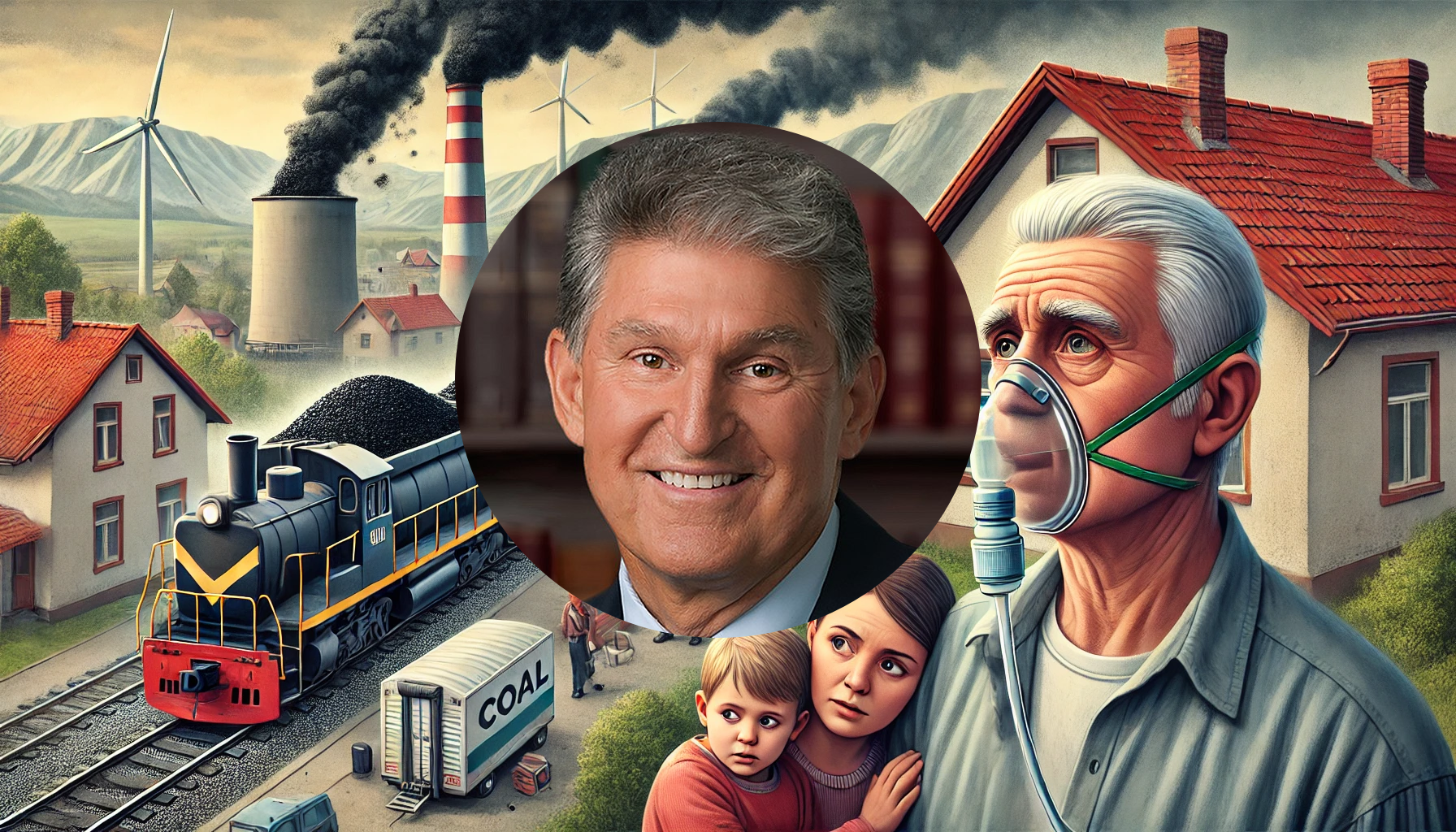Senator Joe Manchin has wielded significant political influence in favor of the coal industry, a stance that has had adverse effects on his constituents in West Virginia and beyond. The state has one of the highest rates of chronic obstructive pulmonary disease (COPD) in the United States, with 13.9% of adults diagnosed with this debilitating lung condition. COPD, which includes chronic bronchitis and emphysema, has been the third leading cause of death in West Virginia for several years, highlighting a severe public health crisis.
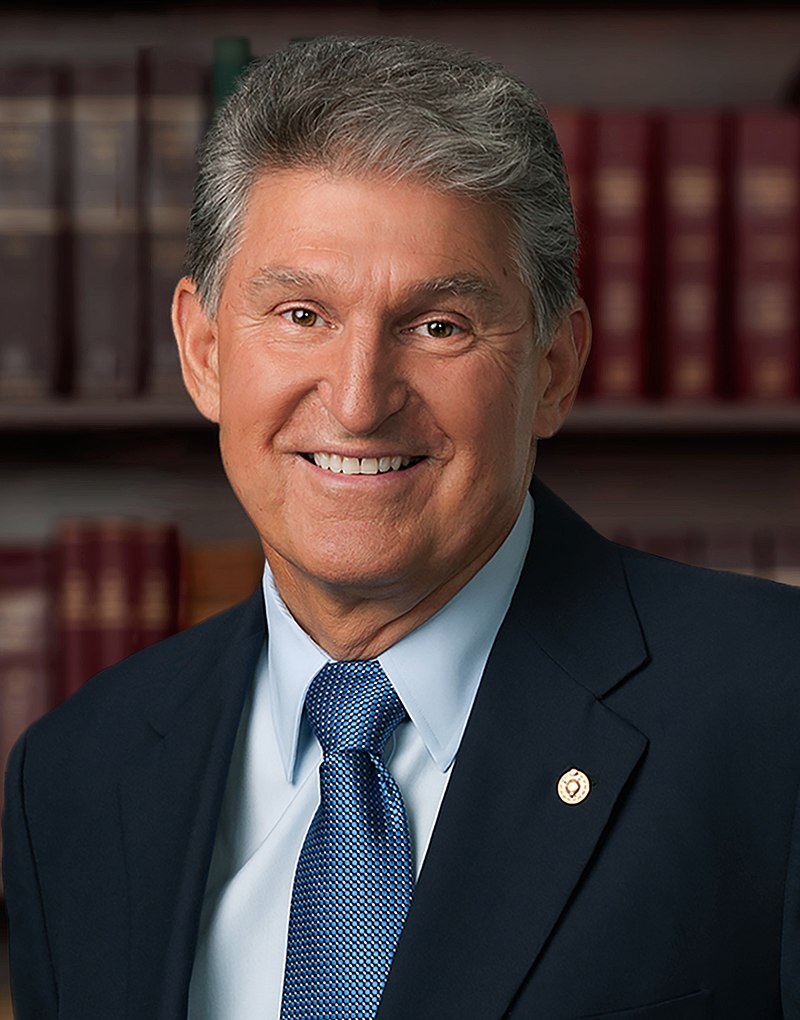
Manchin, who has earned millions from selling scrap coal over the past three decades, has consistently used his political positions to protect this industry. His actions have often placed economic interests above the health and welfare of the people in his state. For instance, as governor in 2009, he supported a clean energy bill that reclassified waste coal as an alternative energy source. This muddy mix of discarded coal and rocks is one of the most carbon-intensive fuels, yet it was put on par with cleaner energy sources like solar and wind power, directly benefiting Manchin’s family business.
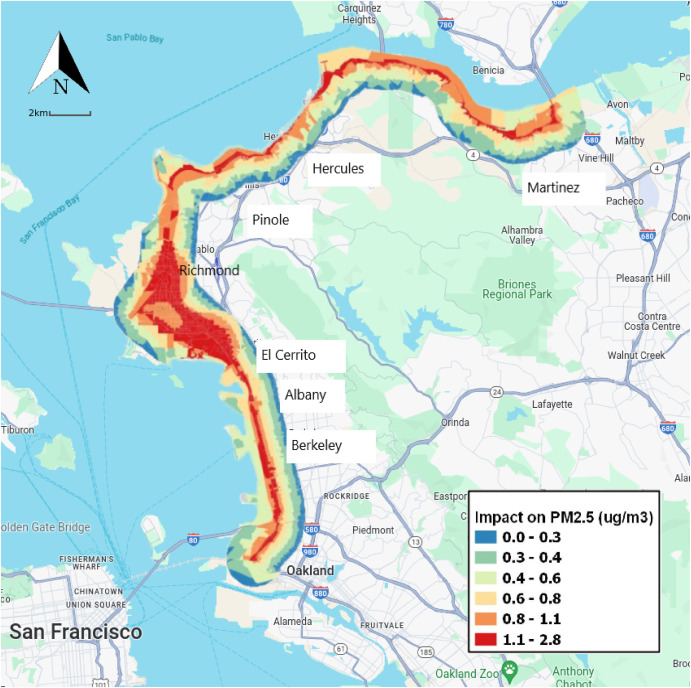
The impact of coal extends beyond the local environment. A recent study conducted in California has estimated the health impacts of uncovered passing coal trains, which include significant increases in mortality and morbidity due to exposure to fine particulate matter (PM2.5).
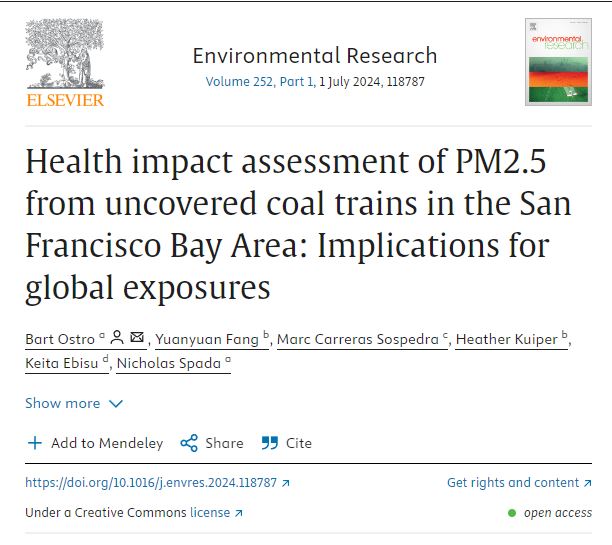
This study found that even short-term exposures could lead to severe health outcomes, such as acute myocardial infarction, arrhythmias, and emergency visits for cardiovascular and respiratory diseases. The long-term exposure to PM2.5 from coal trains passing through communities can lead to increases in premature mortality, hospital admissions for chronic lung disease, pneumonia, cardiovascular disease, and new cases of asthma.
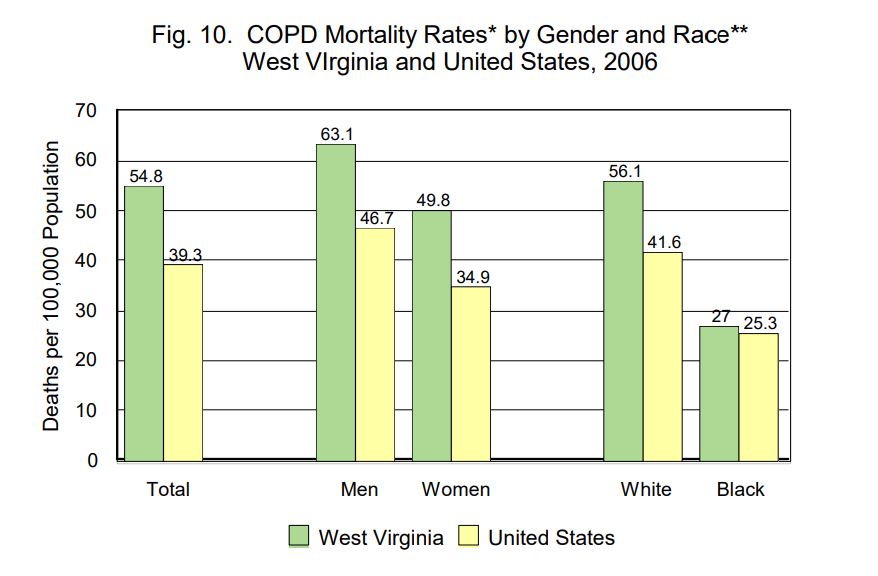
The residents of West Virginia, particularly those near coal transport lines, face a higher baseline rate of health issues such as heart disease and asthma compared to national averages. Communities like West Oakland and Richmond, which are similar in their exposure to coal train emissions, have shown that living near these rail lines significantly increases health risks. These areas are marked by higher rates of mortality, asthma, and other health problems, disproportionately affecting people of color, children, and low-income families.
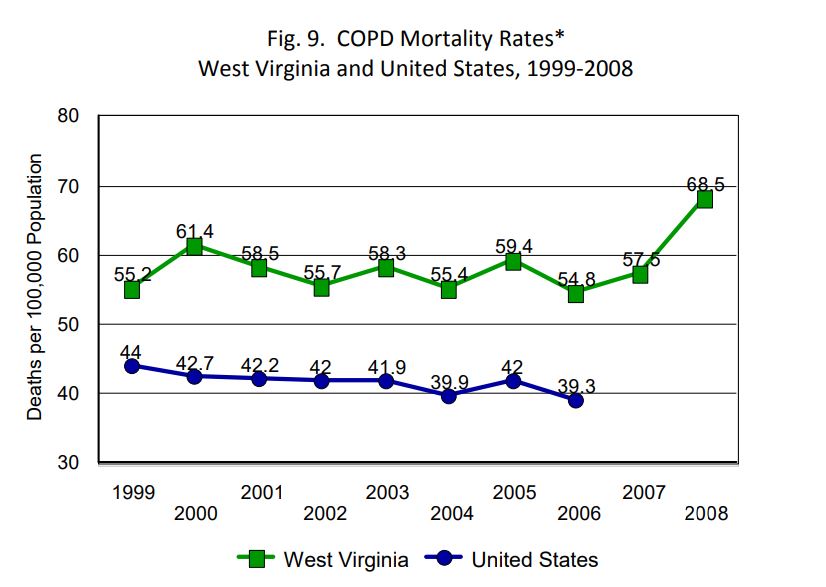
Mitigation options for the particle emissions from coal trains are limited. Traditional methods like chemical surfactants degrade over time, and coal car covers are not commercially available. Even if they were, covers could increase the risk of spontaneous combustion and add weight to the trains, leading to potential derailments. This leaves communities with few options to protect themselves from the harmful effects of coal dust.
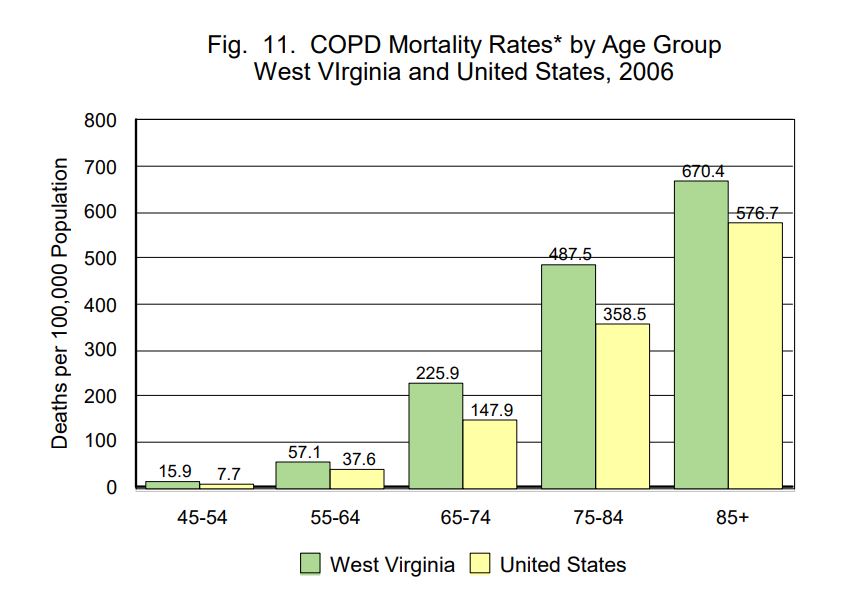
Manchin’s political maneuvers have national implications. By protecting the coal industry, he has not only impacted the local environment and public health but also contributed to a broader issue of environmental justice. The burden of coal transport and its health impacts fall disproportionately on vulnerable communities, exacerbating inequalities.
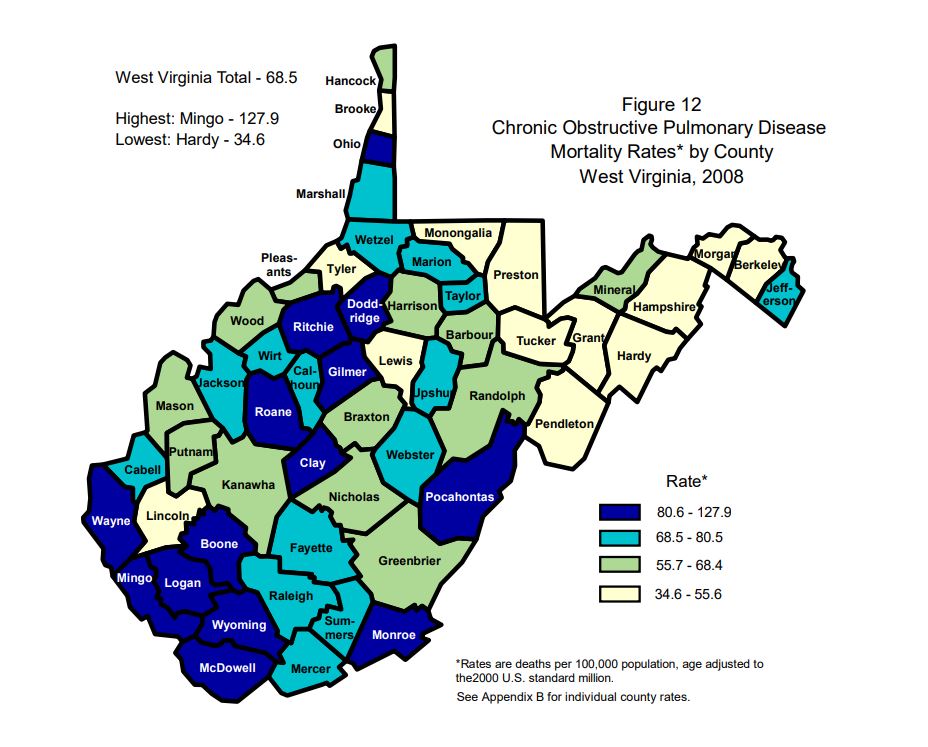
Joe Manchin’s defense of the coal industry, driven by personal financial gain, has come at a significant cost to public health and environmental justice.
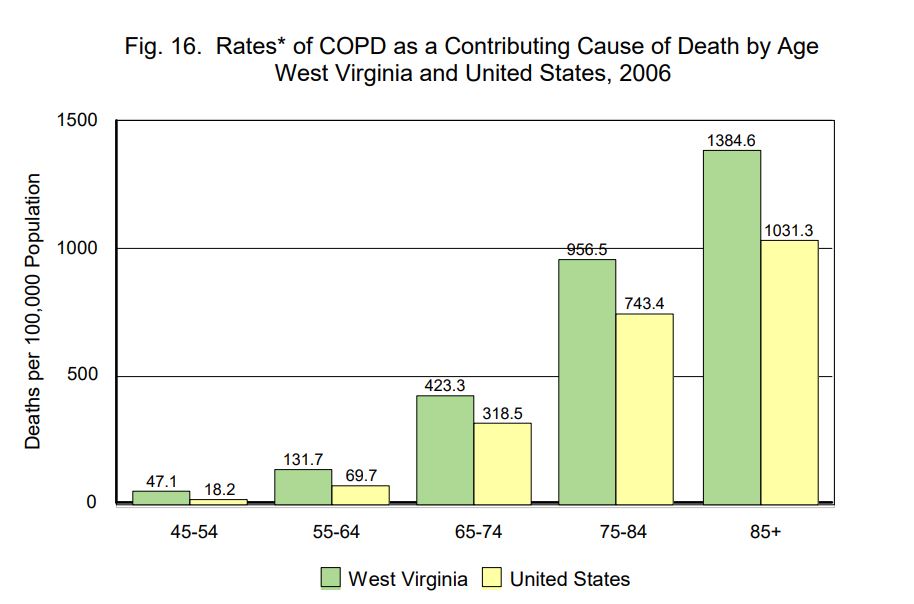
The health crisis in West Virginia, marked by high COPD rates and the detrimental effects of coal dust, underscores the need for political leaders to prioritize the well-being of their constituents over industry profits.

Study Link Here:
West Virginia Report PDF file on COPD here:

